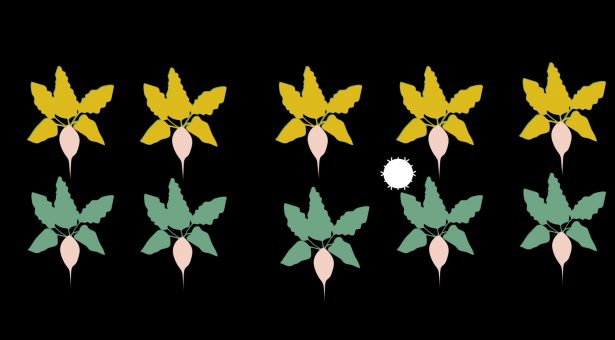Sweet success for sugar beet research bid

A leading John Innes Centre researcher and colleagues have been awarded European funding to develop innovative molecular solutions to combat a damaging sugar beet virus.
Dr Yiliang Ding received the European Research Council (ERC) Proof of Concept (PoC) grant worth £150,000 to carry forward RNA-based approaches to the problem of beet yellow virus
The virus can destroy 50% of the crop yield and poses a serious threat to the industry which is worth 3.6bn Euros.
New molecular approaches are urgently needed to replace neonicotinoid pesticides which are banned in the EU because they are harmful to wildlife.
The ultra-RNA approach developed by Dr Ding’s group captures the shape of the viral RNAs inside plants and uses this knowledge to design specific artificial small interfering RNAs to target and degrade the virus – without environmental damage associated with chemical interventions.
“This is very much a team project and I am delighted that our work has been recognised in this way and my group can now look forward to developing urgently needed solutions,” said Dr Ding, a group leader at the John Innes Centre.
Today’s announcement is the third and final funding round for 2020 and brings the total number of ERC PoC funded projects for the year to 166.
The European Research Council, set up by the European Union in 2007, is the leading European funding organisation for excellent frontier research. Each year it selects the best creative researchers of any nationality and age to run projects based in Europe.
It offers four core grant schemes: Starting, Consolidator, Advanced and Synergy Grants. With its additional Proof of Concept grant scheme, the ERC helps grantees to bridge the gap between pioneering research and early phases of commercialisation.
Announcing the awards ERC President Professor Jean-Pierre Bourguignon said: “Frontier research is the basis that generates innovation in many forms, not only technological, which in turn can impact society positively.”
The 166 PoC grants awarded throughout 2020 went to researchers working in 21 countries. The budget for the 2020 competition was 25m Euros, in total more than 500 proposals were evaluated with an average success rate of 32%.



